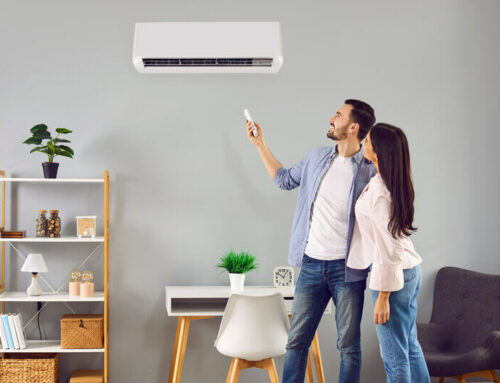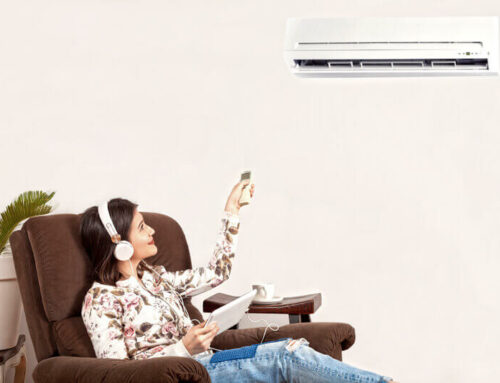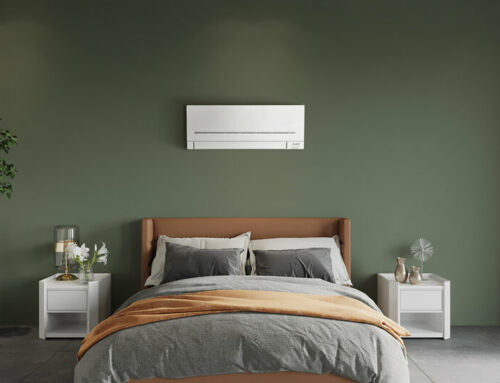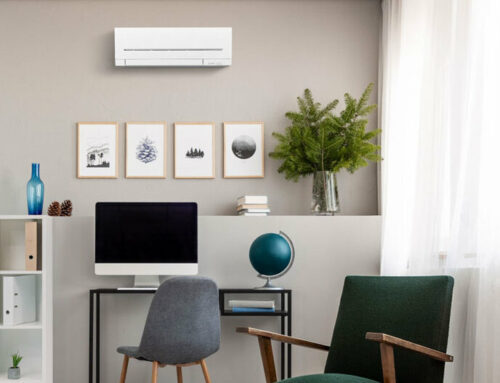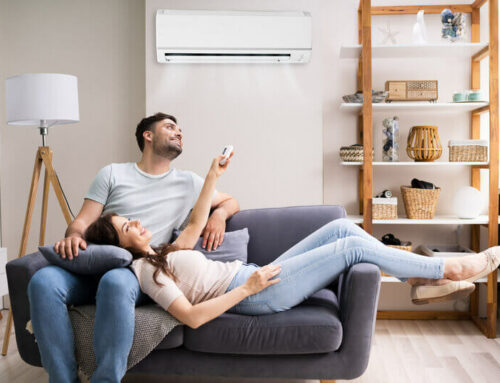Mitsubishi Electric has a huge range of heat pumps for both residential and commercial purposes. From the sleek and stylish to the strong and powerful, heat pumps come in all shapes and sizes these days. We’re lucky to have such a selection however, it can make choosing a heat pump a little difficult.
There was a time when choosing a heat pump was simple purely because there just weren’t many to choose from. But heat pump technology has come along in leaps and bounds since then, with Mitsubishi Electric creating the perfect model for every home.
Style, performance, and energy efficiency are the basis for heat pump innovations.
Depending on the typical weather conditions in your location, the size of your home and your personal taste, Mitsubishi Electric has designed the right kind of heat pump for you. All you need to do is figure out which one that is.
That’s where things can get a little overwhelming.
Choosing a heat pump doesn’t have to be in the too-hard-basket. Here’s an easy guide to help you through it.
Choosing a heat pump – high wall, ducted or floor console
Firstly, what space are you wanting to heat?
This should be the first question to answer. The size of the space you want to heat could be the difference between choosing a high wall heat pump, a floor console or a ducted heating system.
Heating a single space
Heating a single space is easily achieved with a high wall mounted heat pump. Mitsubishi Electric high wall mounted heat pumps come in capacities suited to small rooms such as bedrooms, medium rooms such as family living areas and large rooms such as open-plan offices.
Heating a whole home
To heat a full home, you will need either a ducted central heating system or a multi-room heating system.
Central heating
Central heating is discrete and cost-effective. You can decide where the ducts will go throughout your house and, unlike older central heating systems, Mitsubishi Electric has developed a way to control individual room temperatures. Recognising that everyone has their own standard of comfort, the temperature of each room can be adjusted to suit its occupants.
Central heating ducted systems are a classic method for whole-home heating. With only a small grill visible in the ceiling or wall, the ducted system is great for those who want unobtrusive heating throughout their home.
Multi-room system
For whole home heating, the multi-room system offers greater flexibility. With the multi-room system, you can choose a different heat pump for every room. If your home is made up of rooms of all shapes and sizes, this system is ideal for finding the perfect heating solution throughout the entire house. This means you could have a high wall heat pump in one room and a floor console in the next. You are not bound to one style throughout your home.
No matter how many heat pumps you choose to install through the multi-room system, each will still connect to the same outdoor unit. You also have the freedom to add more heat pumps to the system at any point without the need for further outdoor units.
Now to look at the quality of your home’s insulation
Your home’s insulation plays a big role in choosing a heat pump. If your home is able to retain heat through insulation, your heat pump will work just as it should.
However, for older, less insulated homes, your heat pump will need to compensate for lost heat. The quicker your home loses heat, the bigger the heat pump system you’ll need.
It pays to look into improving your home’s insulation prior to installing a heat pump to ensure you’re getting the most out of the system. While heat pumps are designed to deliver heat regardless of the conditions, retaining the heat is just as important as creating the heat.
Quality insulation is all part of a healthy living environment. If you’d like to improve your home’s insulation, check out Warmer Kiwi Homes and see if you’re eligible for a grant towards ceiling and underfloor insulation.
Now to consider your location
If you live in an area with reasonably mild temperatures and your home is well insulated, you will enjoy the full benefits of standard heat pump models. Most heat pumps work at optimum performance for outdoor temperatures on or above 7oC. When outdoor temperatures drop below 7oC, the heat pump has to work a little harder to deliver the same amount of heat.
If your location drops to very low temperatures in the winter time, you’ll want a heat pump with in-built HyperCore technology. HyperCore guarantees that your heat pump will work to its fully-rated capacity down to -15oC. This means that while the temperatures outside may be extremely cold, your heat pump isn’t working any harder to compensate.
Lastly, combine all the information to find the perfect heat pump
In order to find the perfect heat pump, you need to take all the above information and see what model best fits your situation.
To get a good idea of what heat pump would suit your home, take a look at our heat pump calculator.
Here you can input your information and we will gather a list of heat pump models to choose from.
If you want more information and make sure you get it right, give us a call and have one of our technicians assess your home.
We can advise on your best options and help come up with the perfect heating and cooling solution, whether it’s for your entire home or a single space. Call us today.




